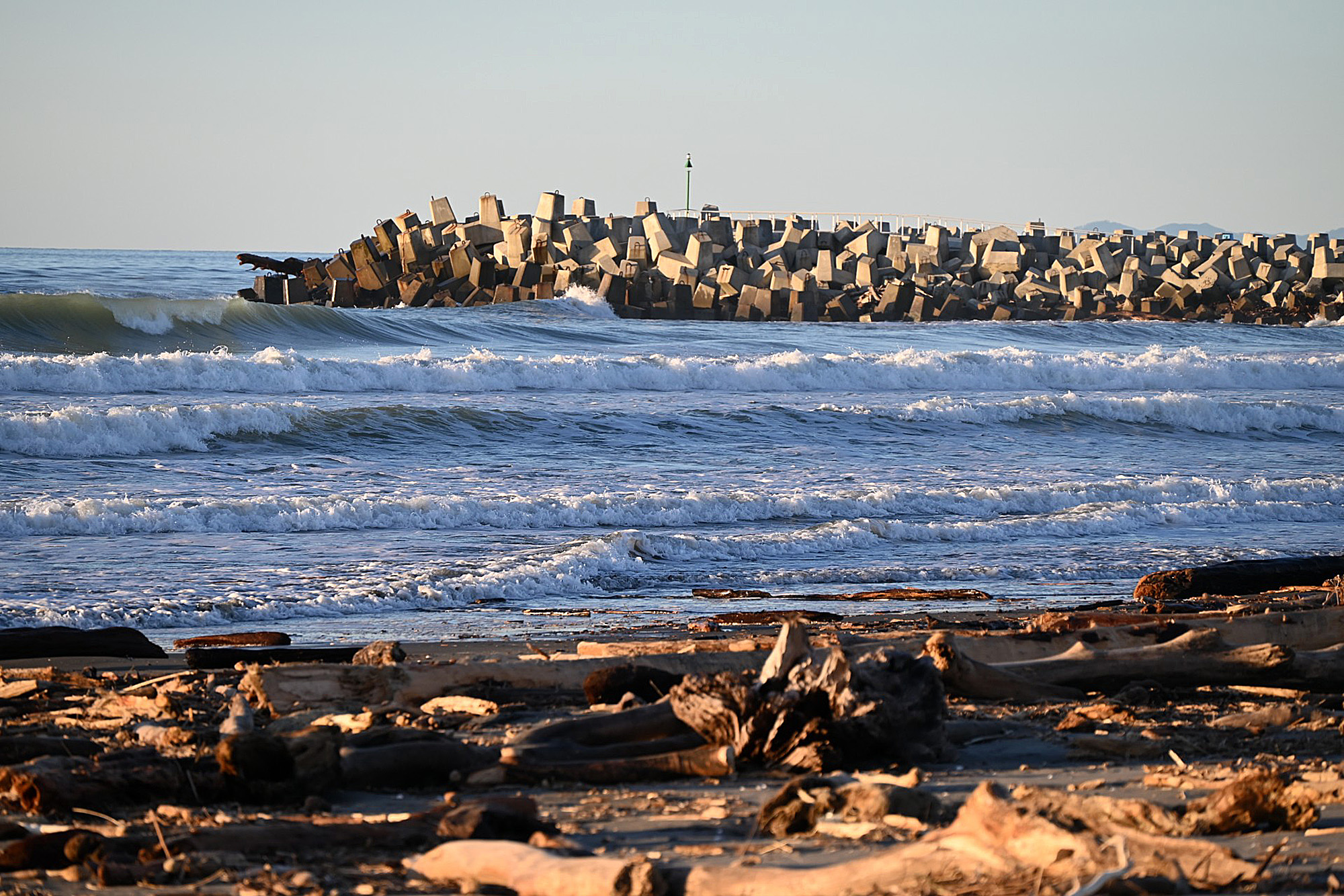Report trash, ignore driftwood

WOULD IT MATTER: A heavy load of driftwood has been washed up near the western groyne but nature will break it down.
Paul Charman
Following storms all sorts of things are washed down waterways and up onto our beaches but though the trash should be reported and removed – driftwood can’t be.
“Some material deposited following a storm is accidental, but a lot is pollution that has been dumped in waterways washed out with the high flows,” said Anthony Kirikiri, Ōpōtiki District Council’s operations manager solid waste.
“Rainwater and high river levels pick up all sorts of pollution and waste, which is why swimming and food collection is discouraged for 48 hours after heavy rain. Our beaches tend to bear the brunt of rubbish and tipping in our waterways, as it gets washed and redeposited on the sand.
“It looks awful, but also costs us as a community - environmentally, of course. It ruins our enjoyment of public spaces and costs a lot to clean up.
“The shopping trolley (pictured has) been reported to council for clean-up. We also picked up a rusted bar fridge - with other bits and bobs - off the beach access at Tirohanga this week.
“We really appreciated the people who reported this rubbish. You can take a photo and add it, automatically including the time, date, and location of the rubbish.”
Mr Kirikiri said community group members who wanted to organise clean-up activities to help remove rubbish from our beaches and waterways should have a chat with the council to ‘pre-register’.
“That means we can talk about how the council can help or support the activities, share some thoughts on health and safety and provide things like photos showing the collected waste so that everything is fair and transparent.
“Thanks must go to everyone who takes the time to report these kinds of issues. If people do see rubbish or other pollution in waterways, you can report it through the regional council’s Pollution Hotline on 0800 884 881.
Asked about the large amount of driftwood recently washed up on beaches, another council spokesperson said the council has no bylaw for driftwood collection.

“Driftwood does not make good firewood as the salt in the wood can damage fireplaces and flues. Treated wood may create air pollution as well.
“It can also be difficult to access beach areas to take large amounts of driftwood because vehicles are not permitted on several Ōpōtiki beaches. This is to help protect fragile dunes, plants and wildlife.
“In addition, many beaches can’t be accessed by vehicles as the adjoining land is private property.”
Recycling centres did not accept driftwood as rubbish, greenwaste or woodwaste because it was relatively heavy and cost a lot to transport and dump. Driftwood was part of a natural cyclical thing on our beaches, providing habitat and food for native insects and plants, the spokesperson said.